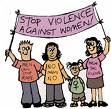New report blames politicians
Foreigners living in South Africa must brace themselves for a new wave of xenophobic attacks in the run-up to the local-government elections next year.
This was the warning from SA Human Rights Commission chairman Lawrence Mushwana, who released his organisation's report on the violence of May 2008, in which more than 60 foreigners were killed and thousands displaced.
The report said infighting between local-government politicians jockeying for power was a possible cause of the attacks, which began in the northern Johannesburg township of Alexandra and rapidly spread to other parts of the country.
"We expect an increase of xenophobic attacks towards the local-government elections, which is why we are here today to discuss how we can be pro-active," Mushwana said.
"When you approach elections, there is always a jostling for power."
The report did not name any politicians.
Mushwana was speaking in Johannesburg at the release of the commission's investigation into the issues of rule of law, justice and impunity arising from the violence.
The report criticised government departments and agencies for failing the foreign victims of the violence.
It found that:
- In the first five days of the attacks, the security forces were not able to prevent the violence spreading to other areas, or stem the killings and loss of property;
- The violence was exacerbated by the lack of interventions to manage and formalise informal settlements; and
- Weaknesses in interdepartmental co-ordination and processes hindered the response to the crisis, including the delaying of the implementation of the Disaster Management Act, which hindered leadership, co-ordination and funding.
The report was completed in February.
Mushwana singled out Balfour, Mpumalanga, the scene of numerous service-delivery protests, as an example of where political infighting led to attacks on foreigners.
The commission's report said that in some areas xenophobic attacks were carried out by politicians.
"Violence was rooted in the micro-politics of South Africa's townships and informal settlements, finding that, in may cases, violence was spearheaded by local groups and individuals seeking to claim or consolidate power," the report said.
Mushwana blamed the government for doing little to prevent the attacks.
"We believe that we could have done more," he said.
























No comments:
Post a Comment